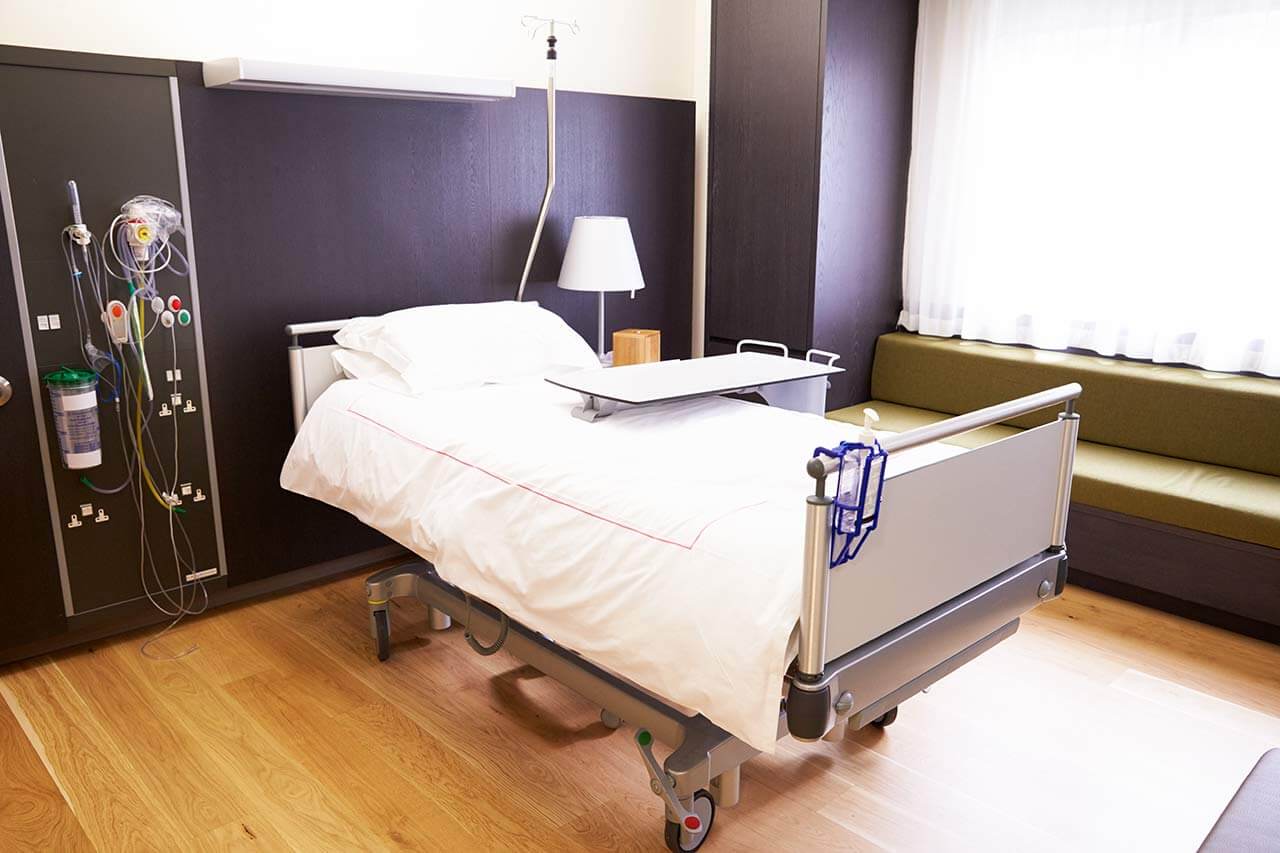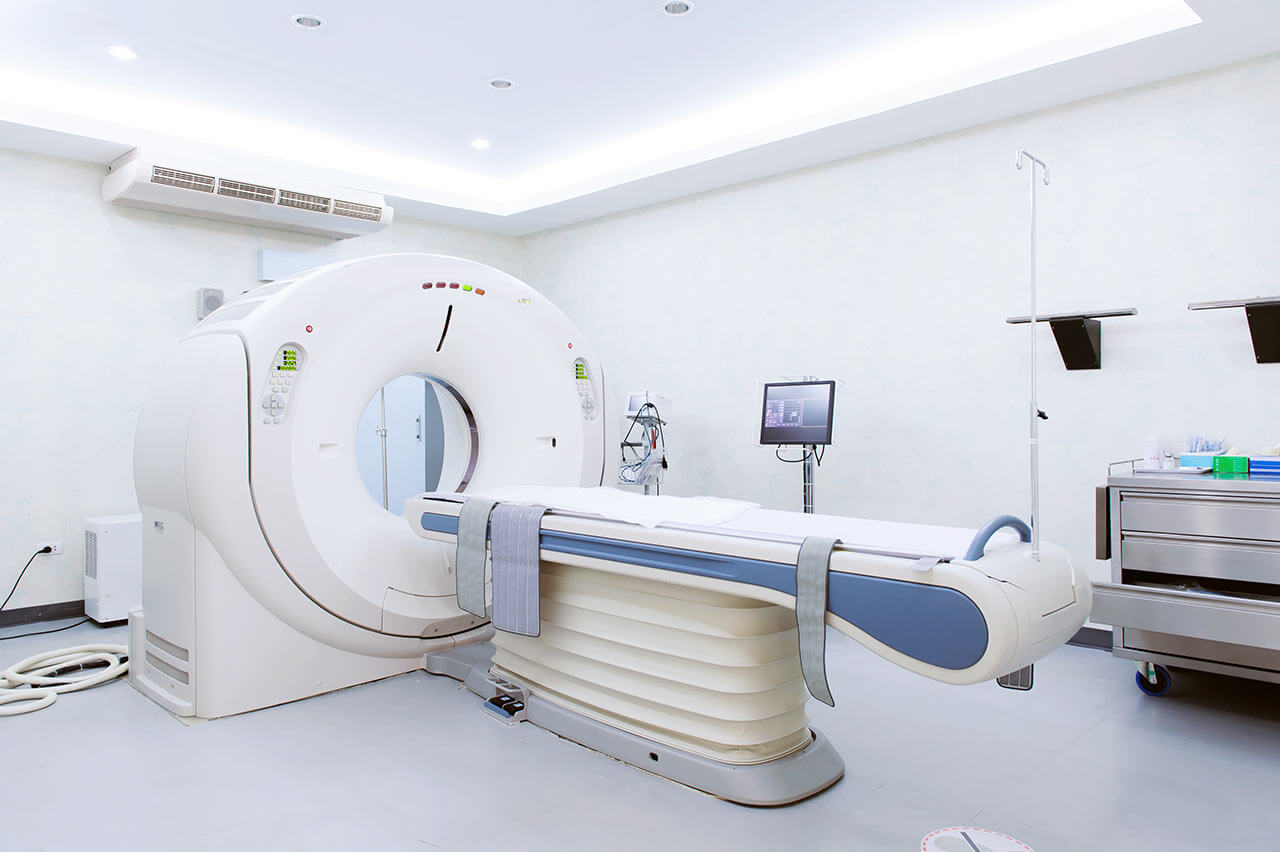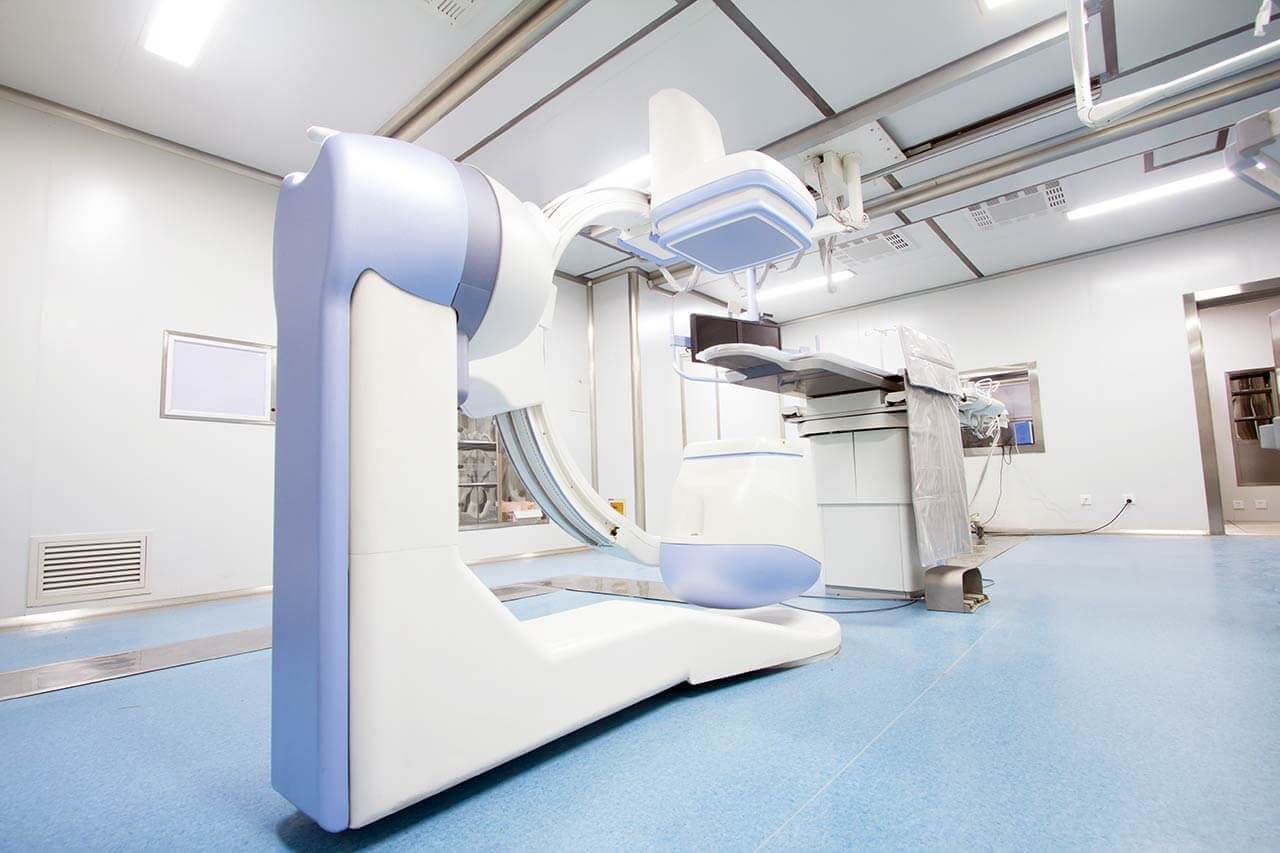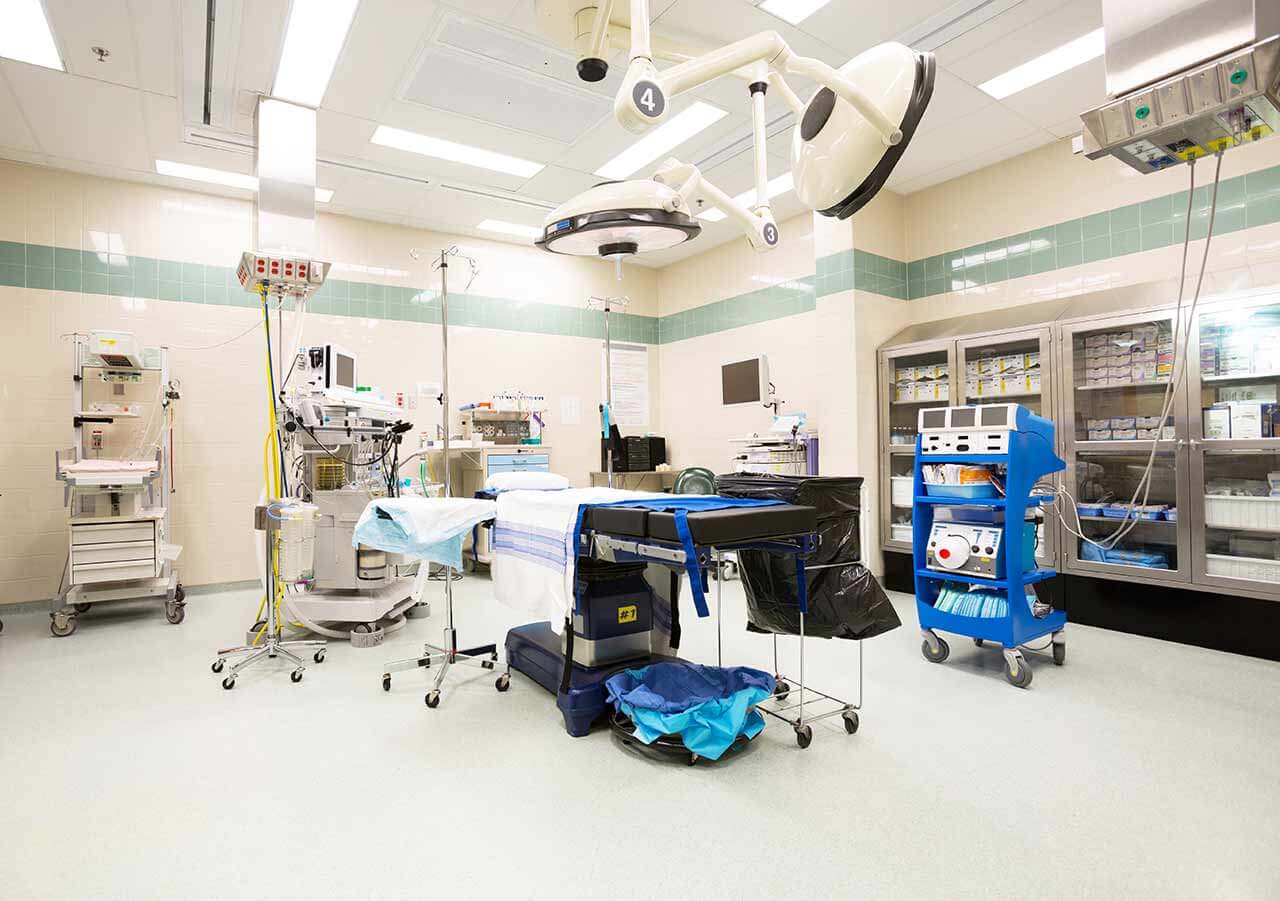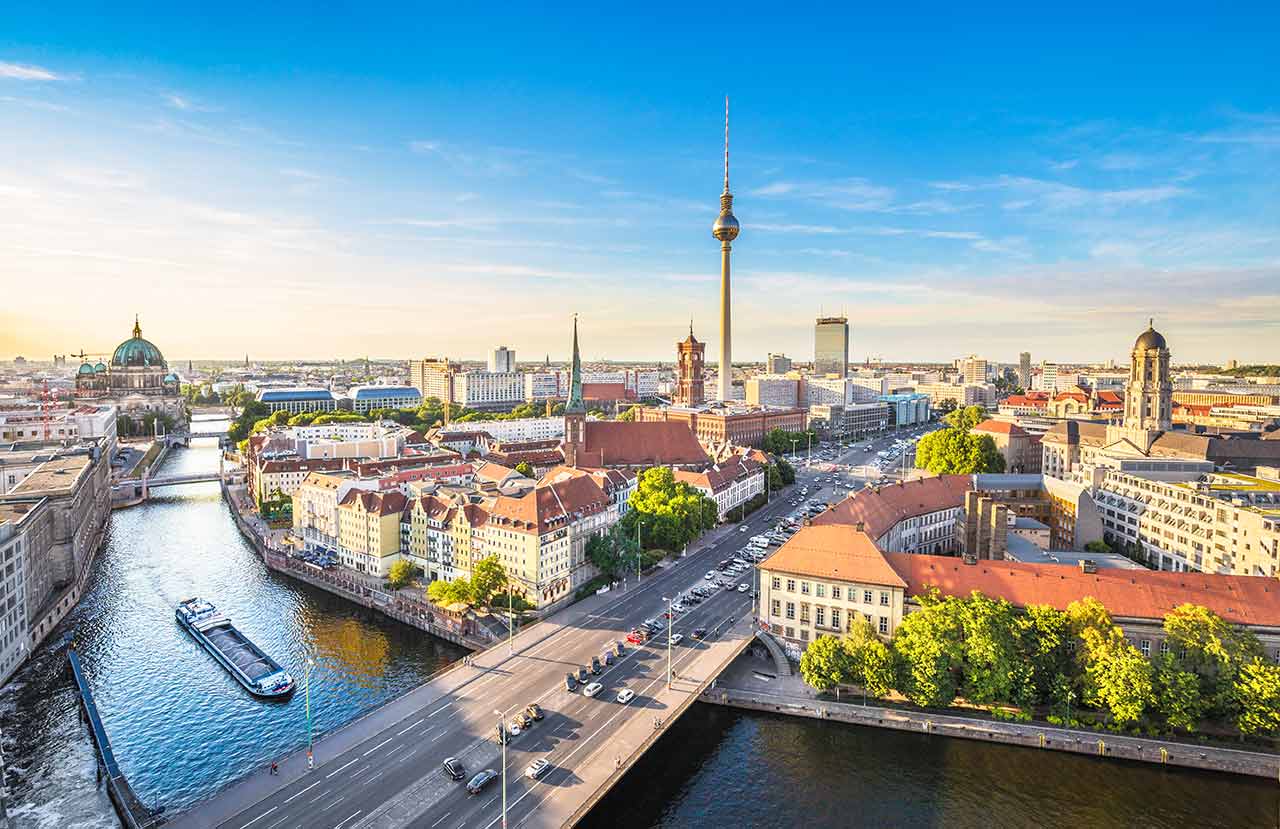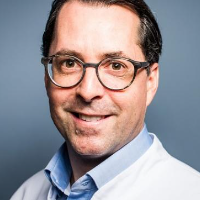
عن Department of Vascular Surgery في مستشفى جامعة شاريتيه برلين
The Department of Vascular Surgery at the Charite University Hospital Berlin offers the full range of medical services in its area of specialization. The department excels in open surgery and endovascular interventions for pathologies of the arteries, veins, and lymphatic vessels. The central place in the department's clinical practice is given to the treatment of abdominal and thoracic aortic aneurysms, peripheral arterial occlusive disease of the lower extremities, carotid artery stenosis, deep vein thrombosis, and varicose veins. Whenever possible, the vascular surgeons of the medical facility give preference to minimally invasive techniques, which reduce blood loss, are less traumatic, and significantly shorten and simplify the postoperative recovery process. The department performs over 3,500 surgical procedures each year, most of which are technically complex. The operating rooms are equipped with advanced surgical equipment and high-precision systems for image guidance during endovascular interventions. The department's team of surgeons is guided by current clinical protocols and the standards of the German Society for Vascular Surgery (DGG). The Head Physician of the department is Prof. Dr. med. Andreas Greiner.
One of the main specialties of the medical facility is the surgical treatment of thoracic and abdominal aortic aneurysms. An aneurysm is a pathological enlargement of an arterial segment due to stretching and thinning of its walls. The diagnosis is made when the diameter of the aorta increases by 2 or more times. The most dangerous consequence of the pathology is the rupture of the aneurysm, which may cause a life-threatening internal bleeding. The specialists of the department mainly treat abdominal aortic aneurysms. The healthcare facility offers both minimally invasive removal of an abdominal aortic aneurysm with subsequent placement of a stent graft (a special prosthesis), and open surgery. Minimally invasive surgery is performed whenever possible, but open surgery also provides excellent results with a high safety profile. Thanks to many years of clinical experience in aneurysm treatment, operations with the placement of a custom-made stent graft for complex abdominal aortic aneurysms are successfully performed here. Prior to surgery, patients undergo a comprehensive diagnostic evaluation, the results of which are used to determine the optimal surgical treatment for each individual patient.
The department's team of vascular surgeons is highly qualified in the treatment of peripheral arterial disease, which causes thrombosis or narrowing of the arteries of the lower (sometimes upper) extremities due to the formation of atherosclerotic deposits on their walls. The most common symptom of peripheral arterial occlusive disease is intermittent claudication: pain and spasms in the leg muscles, usually when walking, but in the advanced stages also at rest. Several approaches have been developed to treat the pathology: drug therapy combined with specific sets of physical exercises, percutaneous transluminal angioplasty with or without stenting, and shunting with classical open techniques, which is the last treatment option used only in complex clinical cases. In some situations, the department's surgeons also perform hybrid procedures, which combine minimally invasive and open surgical techniques.
Patients with varicose veins often seek medical help from the department. Varicose veins are usually asymptomatic, but in the advanced stages of the pathology there is a feeling of pressure and pain in the legs. In addition, varicose veins can be a serious aesthetic problem. To confirm the diagnosis, a clinical examination, ultrasound, and laboratory tests are performed. In the early stages, varicose veins respond well to treatment with compression stockings. As the condition progresses, surgery is often required. The department's specialists offer several surgical treatment options: thermal ablation, mechanochemical endovenous ablation, or classic surgery. Mechanochemical endovenous ablation is one of the most modern and minimally traumatic methods of endovascular treatment of varicose veins. The essence of the procedure is a mechanical effect on the inner wall of the affected vein with a simultaneous administration of a sclerosing agent.
The department's medical services include the following:
- Surgical treatment of thoracic aortic aneurysm using thoracic endovascular aortic repair (TEVAR)
- Surgical treatment of abdominal aortic aneurysm using endovascular aneurysm repair (EVAR)
- Surgical treatment of thoracoabdominal aortic aneurysm using fenestrated endovascular aortic repair (FEVAR) and branched endovascular aneurysm repair (BEVAR)
- Surgical treatment of aortic pathologies using conventional open surgical techniques
- Surgical treatment of carotid artery stenosis using balloon angioplasty followed by stenting and conventional surgical techniques
- Surgical treatment of intermittent claudication using open, endovascular, and hybrid surgical techniques
- Surgical treatment of varicose veins using open and endovascular techniques
- Endovascular treatment of renal artery stenosis
- Formation of dialysis access using open and endovascular surgical techniques
- Other surgical options
السيرة الذاتية
Higher Education
- 1997 Medical studies and thesis defense, Medical University of Innsbruck, Austria.
Professional Career
- 2005 Specialist in the Department of General Surgery, University Hospital Innsbruck.
- 2007 Specialist in the Department of Vascular Surgery, University Hospital Innsbruck.
- 2008 - 2014 Managing Senior Physician in the Department of Vascular Surgery, University Hospital Innsbruck; Extraordinary Professorship, Rhenish-Westphalian Technical University Aachen.
- Since 2015 Professorship, Department of Vascular Surgery, Faculty of Medicine, Free University of Berlin and Humboldt University of Berlin; Head Physician, Department of Vascular Surgery, Charite University Hospital Berlin.
Clinical Interests
- Minimally invasive treatment of thoracic aortic aneurysm using thoracic endovascular aortic repair (TEVAR).
- Minimally invasive treatment of abdominal aortic aneurysm using endovascular aneurysm repair (EVAR).
- Open aortic surgery.
- Treatment of intermittent claudication using shunting and percutaneous transluminal angioplasty followed by stenting.
- Endovascular treatment of renal and abdominal artery stenosis.
- Endovascular and open procedures for carotid artery stenosis.
- Surgical procedures for the formation of dialysis access.
- Surgical and non-surgical treatment of varicose veins: aesthetic procedures, sclerotherapy, and endovenous laser ablation.
Memberships in Professional Societies and Organizations
- Fellow of the European Board of Vascular Surgery (FEBVS).
Photo of the doctor: (c) Charité – Universitätsmedizin Berlin
